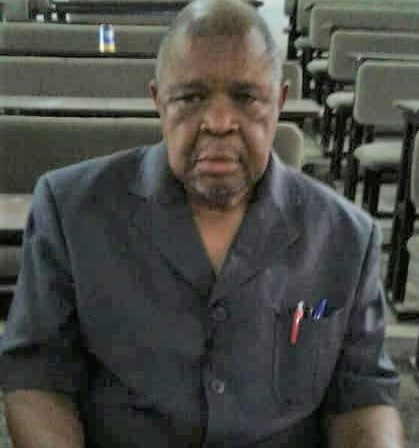
In this exciting interview, eminent scholar and black Africa’s first professor of Pharmaceutical Technology, Professor Bona Anayochukwu Obiorah, who just clocked 80 years, says he is renewing his commitment to mentoring younger people and doing works of charity, adding that he would like to be remembered for his contributions to pharmacy education and research. The erudite professor, who worked as a consultant to the World Health Organisation (WHO) for many years, also reveals the dramatic events that led him to studying Pharmacy at the University of Ife (now Obafemi Awolowo University), even without applying for it as a course of study. He further shares his routines, since retirement in 1999, while advising the current generation of pharmacists to make the best of their professional calling. Excerpts:
Kindly tell us a little about your background
My early education was at the University of Ife (now Obafemi Awolowo University, Ile-Ife), where I got my Diploma in Pharmacy and, later, B.Pharm. In those days, if you made a first class or 2:1 (second class upper), you would have automatic scholarship to go for a higher degree. So, I went on to the University of London, where I did my PhD in Pharmaceutical Technology. After that, I returned to the University of Ife as lecturer.
In a period of seven years, I rose to become a professor of Pharmaceutical Technology and, by that appointment in 1981, I became the first professor of Pharmaceutical Technology in the whole of black Africa. I had remained in academia, until 1999, when I retired from the University of Benin.
Since 1999, I have been involved in extensive consultancy to World Health Organisation (WHO) and other agencies like the Global Alliance for HIV/AIDS. I have published extensively in notable journals in Pharmacy and other areas. It has been a very pleasant experience being in academia. I have worked in the hospital for a few years. I was in the hospital service when the war broke out. It was after four years that I left hospital service.
By the grace of God, you will clock 80 on 21 February, heralding your entry into the league of octogenarians. How do you feel attaining 80 years of age? Are there things you would like to start, discontinue or reinforce at this time?
Thank you very much for your congratulatory message. I do appreciate it most sincerely. It is not a small thing to clock 80 years in Nigeria now. This is a country where if young people clock 40 years, they are celebrated. At 80, I am most grateful to God Almighty for this privilege and I do not have any new plans to start any new projects other than help in charity works, help in mentoring younger ones and contribute generally to the progress of Pharmacy in terms or writing and making contributions to the development of knowledge.
As an octogenarian, what are the lessons you have learnt in life which you would like the younger ones to pay attention to and learn from?
There are many lessons one has learnt over the years but the most important thing is that there is no competition in life. No two people are the same. You go at your own speed and one must avoid greed. Many of the things that you think that you need are really wants. God will always provide our needs but not our wants. To the younger ones, I will always advise that they work out their trajectory early enough in life, but not try to copy other people. Copying other people will not help anybody.
How would you describe your days in university service?
While I was in university service, I always advised my students that they must learn to crawl before they can walk. The problem with young people these days is that they are always in a hurry, and this has created some of the problems we have in Pharmacy.
For example, when I was at OAU and UNIBEN, students were always reluctant to go to the University College Hospital, Ibadan, because the hospital was working seven days a week and the students wouldn’t want to miss weekends. I used to tell them that if a hospital could dispense with their services on Saturday and Sunday, it could dispense with their services altogether.
My research interest in the area of Pharmaceutical Technology has always been in formulation design. That is one of the areas in which I was working with WHO, using Nigerian additives, Nigerian starches, and Nigerian corns.
Some of my students, in their graduate work, researched into some of these additives, got their PhDs and I’m happy to say that, at least, four of them that went into academia and became professors in the area of Pharmaceutics and Pharmaceutical Technology.
The founder and publisher of Pharmanews, Sir Atueyi, was my classmate, right from my year one at the university and we graduated the same year. He had a 2:1 and I had same, too. He is known all over the world for what he is doing in pharmaceutical journalism. So, there is dignity in labour and you have your self-respect.
As an elder in the profession, I would want to harp on the issue of respectability. I will continue to harp on the issue of dignified labour.
When would you describe as the most memorable point in your career?
During my university service, I became dean of the Faculty of Pharmacy, University of Benin in 1984 and I had a second term of two years in 1986. When I finished as dean, after the four-year stint, I continued mainly with research activities. But in 1993, I was appointed through election in senate as deputy vice-chancellor, Administration, at the University of Benin. This ran from 1993 to 1995 and I was re-elected for a second term in 1995 till 1997.
It was after serving as deputy vice-chancellor, that I said I had paid my dues in the university service, after more than 30 years as an academic. It was after that, that I started serving as consultant to different organisations.
Outside academia, I was active in the Catholic Church. I became a Knight of St John (KSJ) in 1988 and I was also involved in the running of tertiary institutions. I became the chairman of the governing council of Anambra State College of Education, which was in Awka then but now relocated to Nsugbe.
What exactly informed your decision to study Pharmacy at a time when there were quite a few people one could imitate in the field?
I would say it was Providence. I applied to study Agriculture at the University of Ibadan and was admitted in 1959. However, while preparing to go to Ibadan, someone told me he saw my name under the Eastern Nigerian Government scholarship for Pharmacy. I did not know what Pharmacy was and I did not apply to Eastern Nigerian Government for scholarship to study Pharmacy.
So, I went to the Ministry of Education in Enugu and was told that they needed students that would study Pharmacy and since I had a very solid result in the sciences, I was one of those selected by the Eastern Nigerian Government to study Pharmacy.
I went around asking what Pharmacy was from older people who had an idea of the course. In any case, I needed a scholarship to go further in my education; so I accepted the offer. That was how I found myself in Pharmacy and, in a way, I never regretted accepting that scholarship.
Even going into Pharmaceutical Technology was an act of pure providence because my interest for postgraduate work was Pharmacology but again the vice-chancellor of the University of Ife invited me to his office and said, “I will not send you to London to study Pharmacology. We are in dire need of lecturers in Pharmaceutics. So if you want to go overseas to do postgraduate work, it has to be in Pharmaceutics.”
Just coming out of the civil war at that time, it was very necessary for me to get out of Nigeria at that time for whatsoever reason. So I accepted to go for a postgraduate study in Pharmaceutics, which, in fact, was an area that in which I thought I was weakest. Pharmacology was my strongest area. So I went to London and worked very hard in Pharmaceutics. In fact, I was made to do the qualifying exams, I excelled and I did straight PhD; I didn’t have to do masters.
When you look at the current state of pharmacy practice these days, what are the areas you would like to see improved? Or are you satisfied with the current state of practice in Nigeria?
Thank you for this question. Pharmacy is a very noble profession. For one to be a real pharmacist, you must have eyes for details. When a doctor makes a mistake, he kills the patient. When a pharmacist makes a mistake, he may kill thousands of people.
Some years back, a young pharmacist at the University of Nigeria Teaching Hospital made a mistake when he was formulating paracetamol syrup. What he did was, instead of picking propylene glycol as a solvent for the paracetamol which is very insoluble in water, he picked ethylene glycol.
The two are glycols – propylene glycol and ethylene glycol. Propylene glycol is a very safe additive but ethylene glycol is a deadly poison. He made up the bulk paracetamol syrup and, within days, children were dying like flies and it was on checking the ingredients he used, that it was discovered that he had mistakenly picked ethylene glycol, instead of propylene glycol. Before this error was discovered, several children had died.
If an architect makes a mistake in design, when people pass, they will say, “What useless architect designed this building?” And that can be corrected. But if a pharmacist makes the type of serious mistake that was made in the preparation of that paracetamol, hundreds of children can die.
In my time at the hospital, pharmacists were very highly respected. It was during my time that Pharmacy was moved from being technical grade to professional grade and if you had your B.Pharm, you would be classified as a pharmaceutical officer.
What you find these days, however, is lack of dedication. The rush to make quick money. The young pharmacist is in the hospital but his mind is outside to make quick money. The same problem is what we have in retail or community pharmacy. Some of the young pharmacists who go into retail pharmacy do this “register and go”. And register and go is such a dangerous thing because even the trader who is employing the young pharmacist does not stay in the shop. He goes in the evening to collect the money for the day. So, the patients are exposed to danger.
But one thing about the current hospital pharmacy practice in Nigeria is the introduction of clinical pharmacy which has moved Pharmacy from product-orientation to patient-orientation. So, the young pharmacist with the PharmD now spends time with the patient, interacting and explaining everything about the pharmaceutical product being given to the patient – and not just pushing out the drugs through the window in a small cubicle. So, hospital pharmacy is now very well advanced and will continue to advance.
When look back at your struggles and contributions over the years, what would like to be remembered for?
The main thing I want to be remembered for are my contributions in the areas of pharmacy education and research. I have spent a greater part of the last 40 years teaching and researching in different pharmacy schools. I would like also to be remembered for my contributions to the World Health Organisation (WHO) where I served for many years as a consultant on the establishment of small and medium pharmaceutical plants in developing countries. I am happy that many of the developing countries are applying some of the findings and recommendations in those researches and it is paying off for them.
Also, one of the things that give me the greatest pleasure is the opportunity to have been in the “factory” for the production of manpower in Pharmacy. When I attend pharmaceutical conferences, I see some of these my children and grandchildren doing well in different aspects. That gives me great pleasure. During my travels abroad – maybe I’m getting onto a train or a bus – somebody grabs my bag and says, “Sir, please let me help you.”
These are faces I can’t remember. In fact, on a few occasion, they take my address and before you know it, they are bringing a lot of gifts for me, drop in my place and disappear. Sometimes, they don’t even leave their names.
How do you keep busy these days?
Talking about keeping busy, the only outdoor activity I do now is walking. I keep fit by walking. So I do a lot of walking but within my compound. I go round my compound about 10 times in the morning. That gives me about that two kilometres. Then after walking, I do a workout. This keeps me going health-wise and I am looking forward to being 80 in a few days’ time.
I really believe that since I still have good health, I will continue with my exercises. Of course, I still do a lot of reading. Reading gives me great joy. The last few months we have been in this coronavirus pandemic, I have increased my reading and I have also slightly increased my workout because the lockdown is not easy for anybody.










